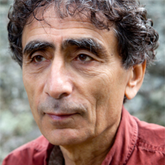 Like so many, I was deeply affected by Robin Williams’ suicide. I was a big fan of his comedy. In one of his greatest moments of standup, he invented a new psychiatric medicine he called “Fukitol” and forever won my heart. I also loved most of his dramatic performances such as Good Morning Vietnam, The Birdcage, and Good Will Hunting.
Like so many, I was deeply affected by Robin Williams’ suicide. I was a big fan of his comedy. In one of his greatest moments of standup, he invented a new psychiatric medicine he called “Fukitol” and forever won my heart. I also loved most of his dramatic performances such as Good Morning Vietnam, The Birdcage, and Good Will Hunting.
I knew all along that Robin Williams was one of us. He reveled in outrageous genius that always teetered on madness. He made the world laugh, while he wrestled with depression and battled his addictive demons.
Of course, he slipped at times. He took wrong turns and made some bad choices. But he was resilient. He kept self-righting. He sought out help including detox, medications, therapy and mutual support groups.






